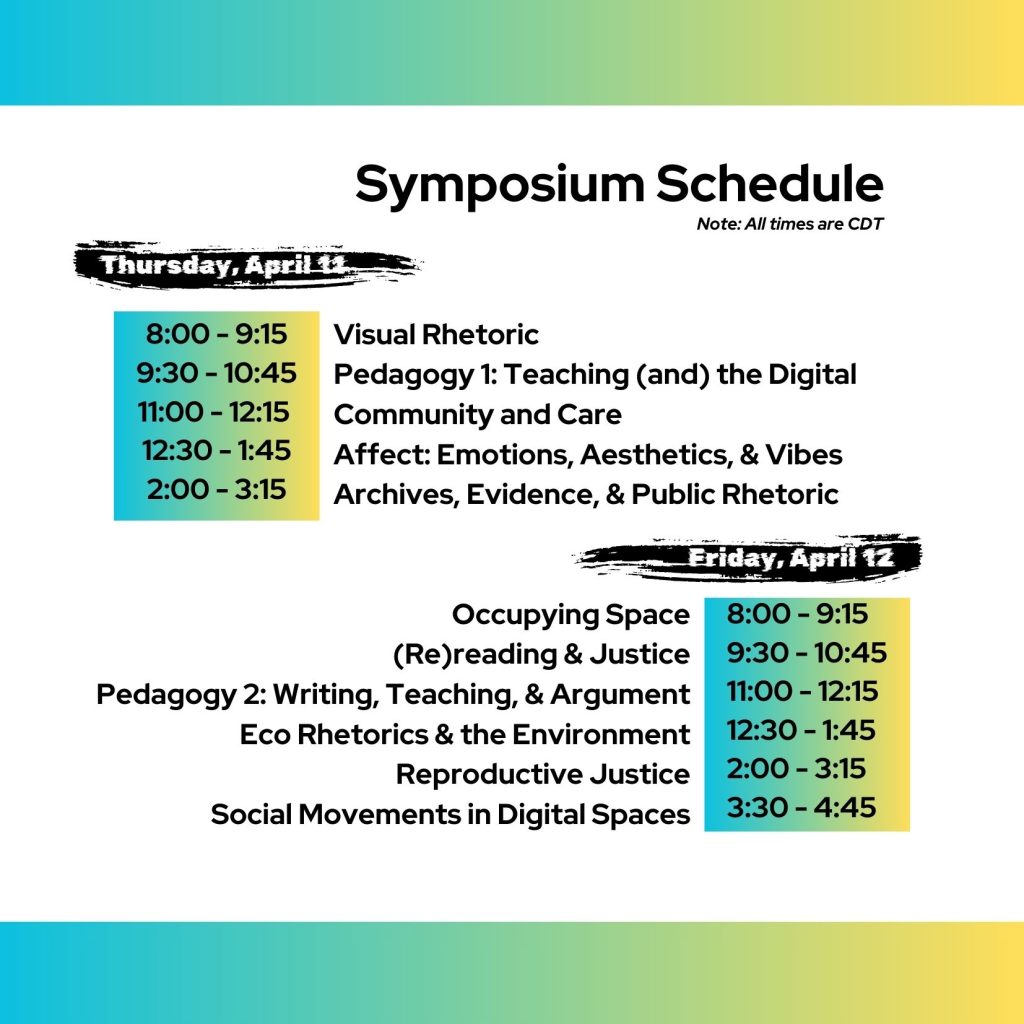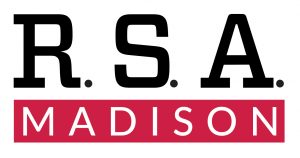
The RSA Student Chapter of UW-Madison provides a forum for gathering as rhetoricians and serves a variety of functions related to furthering the collaborative study and practice of rhetoric. Our goal is to build community across disciplines around our shared rhetorical concerns and provide ample opportunities to share and present ideas. Further, as a nexus of rhetorical engagement, we also seek to cultivate capacity for furthering the Wisconsin Idea; namely, to make a difference in people’s lives outside the university.
Events
2024 Spring Symposium
Our 2024 Spring Symposium will take place on April 11 & 12. It is free and fully virtual. Register now to receive links to attend any or all of the below sessions:
Theory & Practice: Lunch and Learn Workshop Series
In theory there are many different ways to practice scholarship.
In theory we can practice locating our voice, our contributions, and our potential.
In theory, grad school is where you get practice becoming yourself as a scholar, an activist, an artist, a member of your community and the communities with which you engage, and more.
In practice, we deepen our engagement with the theories that guide our thinking, become better teachers and lecturers, and get closer to the material that we and others care about.
We invite our rhetoric grad students to go from theory to practice in our new monthly lunchtime workshop series. In this series, grad students will have the opportunity to practice giving a talk, demonstrate the material application of their research, and engage more deeply with one another’s work — all in a supportive, low-pressure environment.
Stay tuned for this semester’s schedule and location!
Our next workshop could be hosted by YOU! Do you have research you want to share, a job talk you’d like to practice, art, music, or poetry you’d like to perform, or material applications of your research or pedagogy you’d like to demonstrate? Here’s your chance! Let us know you’re interested in hosting a workshop here.
This is an accordion element with a series of buttons that open and close related content panels.
2022 Spring Symposium
Spring Symposium: April 14-15
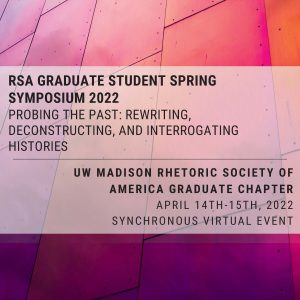
Keynote Speaker: E. Cram. They discussed their debut book,Violent Inheritance: Sexuality, Land, and the Making of the North American West, which is due out from University of California Press in the weeks following our Spring Symposium.
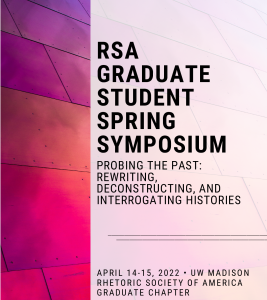
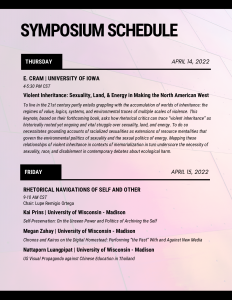
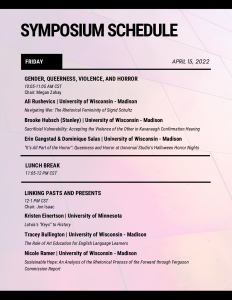
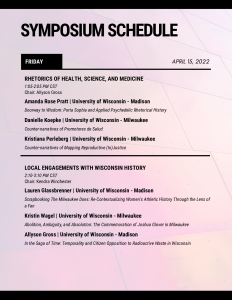
This is an accordion element with a series of buttons that open and close related content panels.
Past Lunch & Learns
February 11, 2022: Lupe Remigio Ortega (Comp/Rhet): Oral History, (Auto)Ethnography, and IRB Challenges
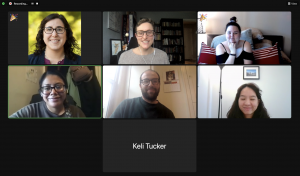
Lupe will discuss her dissertation proposal and her challenges with IRB protocols that don’t create space for researching oral history as rhetoric. We’ll offer feedback and ask questions about the proposal to help Lupe prepare for her defense.
March 11, 2022: Erin Gangstad (CommArts): Archival Research: Before, During, and After
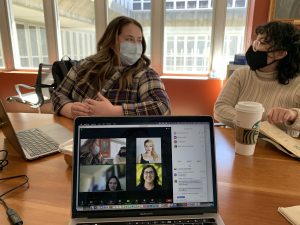 What does it actually look like to plan and execute an archival research trip? How do you navigate record use restrictions, vague finding aids, or just the initial outreach to an archivist? And when you’re at the archive, what tools, procedures, and practices can help you make the most of your time? Drawing on her own trials and errors in physical archives from Alaska to the Adirondacks, Erin will discuss how to reach out to an archivist, what to do when you hit roadblocks, and the important questions to ask before you ever step foot through the archive’s door. You’ll also learn about digital tools like text scanning, PDF conversion, and Zotero that can help catalog your records in real time.
What does it actually look like to plan and execute an archival research trip? How do you navigate record use restrictions, vague finding aids, or just the initial outreach to an archivist? And when you’re at the archive, what tools, procedures, and practices can help you make the most of your time? Drawing on her own trials and errors in physical archives from Alaska to the Adirondacks, Erin will discuss how to reach out to an archivist, what to do when you hit roadblocks, and the important questions to ask before you ever step foot through the archive’s door. You’ll also learn about digital tools like text scanning, PDF conversion, and Zotero that can help catalog your records in real time.
April 8, 2022: Kelly Jensen (CommArts): What does community engaged scholarship look like?”
Join Kelly in a discussion that explores what community engaged research can look like for busy graduate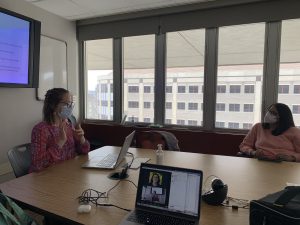 students juggling many priorities. Focusing on the possibilities and limitations of community engaged scholarship, Kelly will discuss her own experiences engaging with different communities she interviewed for research projects. Then, she will open up a discussion about how you can apply community engaged research in your own projects. Come ready to share about current/future projects and brainstorm how you can apply community engaged research in your own scholarship.
students juggling many priorities. Focusing on the possibilities and limitations of community engaged scholarship, Kelly will discuss her own experiences engaging with different communities she interviewed for research projects. Then, she will open up a discussion about how you can apply community engaged research in your own projects. Come ready to share about current/future projects and brainstorm how you can apply community engaged research in your own scholarship.
May 6, 2022: Fiber Arts Circle
Come de-stress during finals with a fiber arts project or two! Bring something you’re working on or come learn how to knit, crochet, or needle felt!
This will be a fully in-person event. Meet us in the Living Room Lounge in the IMC on the 3rd floor of Vilas!
Past Events
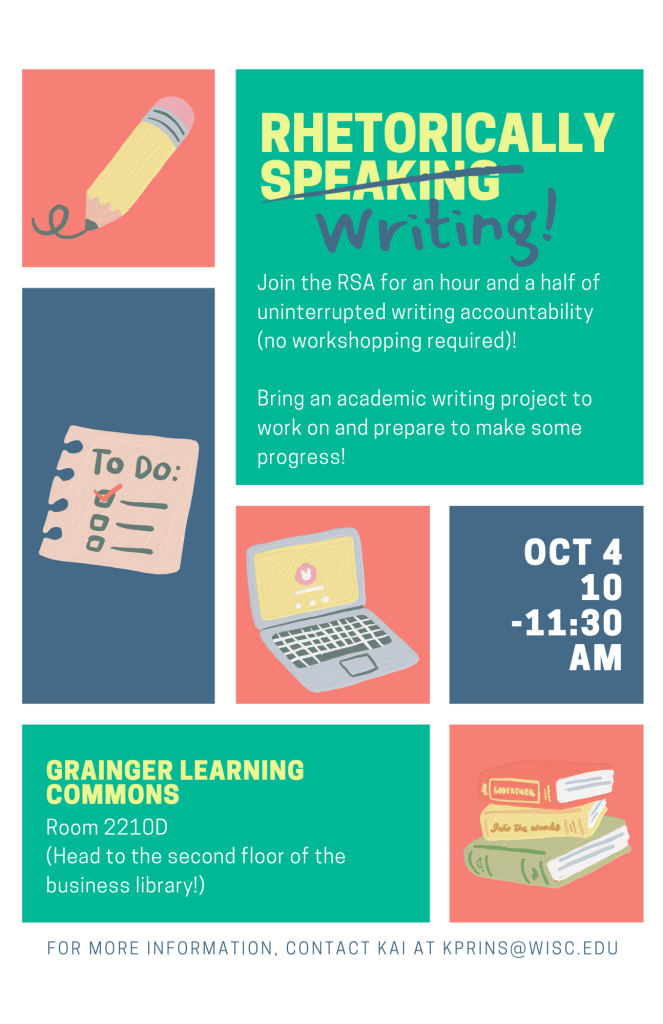
Awards
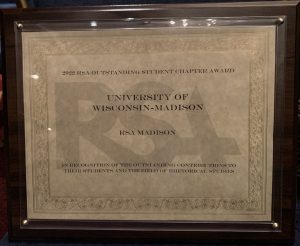
Officers
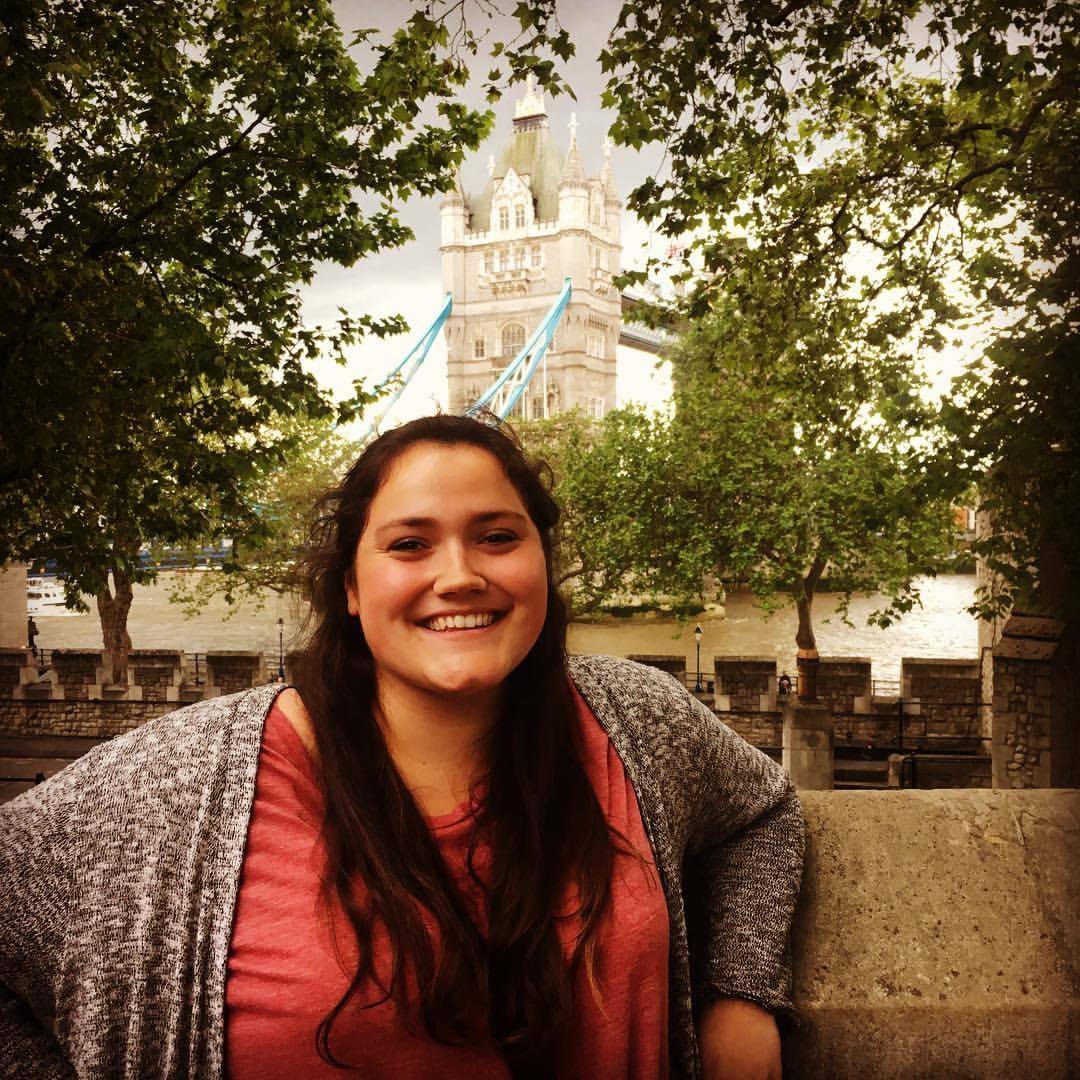
Alicen (Ali) Rushevics (she/her) | Co-President, Communication Arts
Ali is a 4th year PhD Candidate studying the rhetoric of apology, reparation, and reconciliation amidst historical erasure particularly in the Pacific.
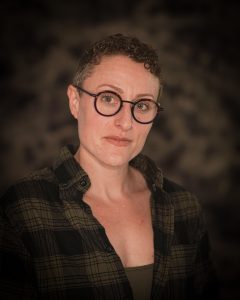
Kai Prins (they/them) | Co-President, Communication Arts
Kai is a PhD Candidate studying the rhetorical influence of economics and/on embodied gender performance in neoliberal consumer culture. Their research interests include the marketing and advertising of social issues, the convergence of wellness and new media, and drag performance.
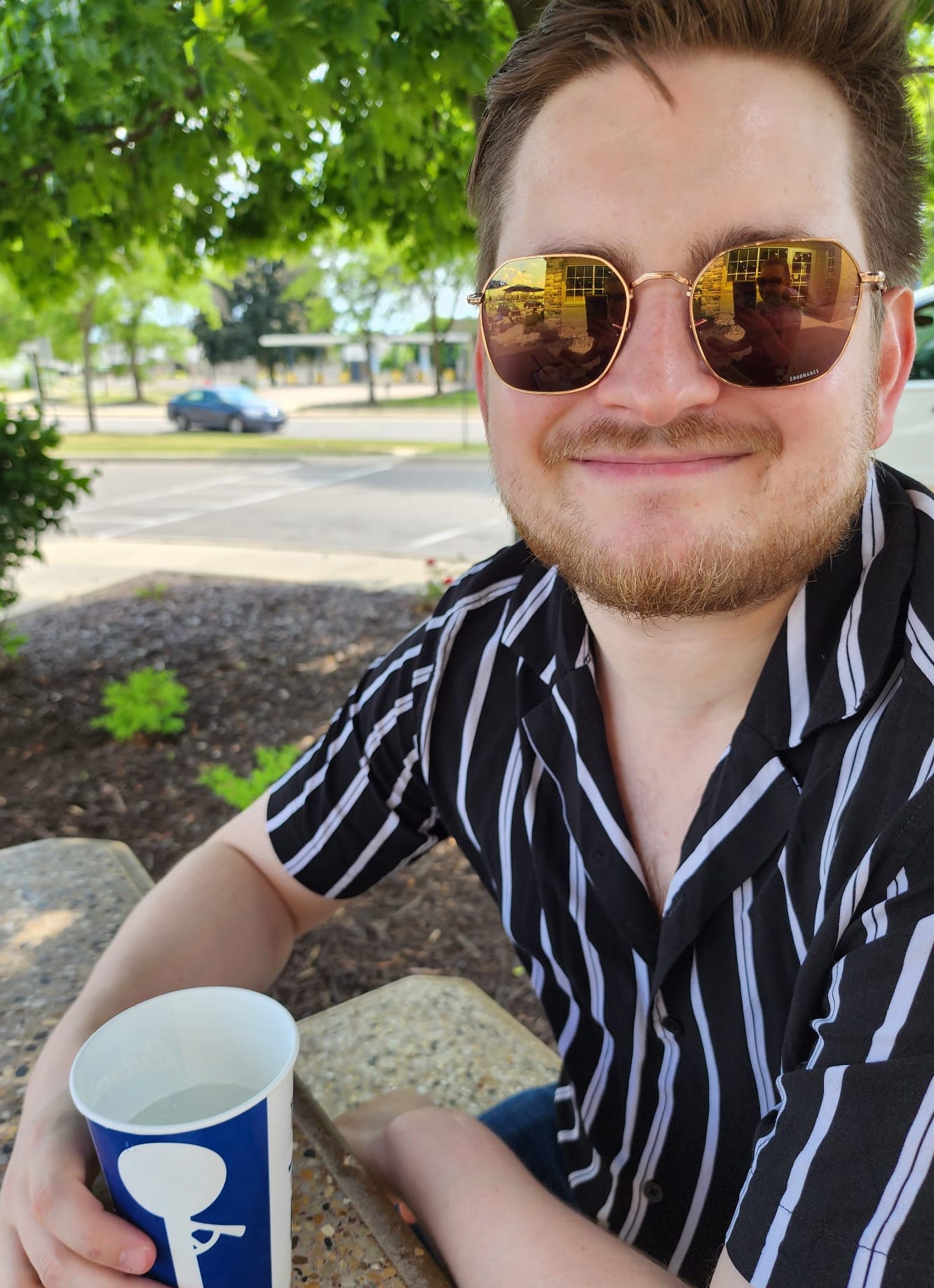
Nick Avery (he/him) | Treasurer, Composition & Rhetoric
Nick is a fourth year PhD Candidate studying how rhetoric constructs ideas of “the body” through shared affective investments. He is currently writing about the student body as a concept held together by the literate and rhetorical practices students negotiate as they make their way through university education
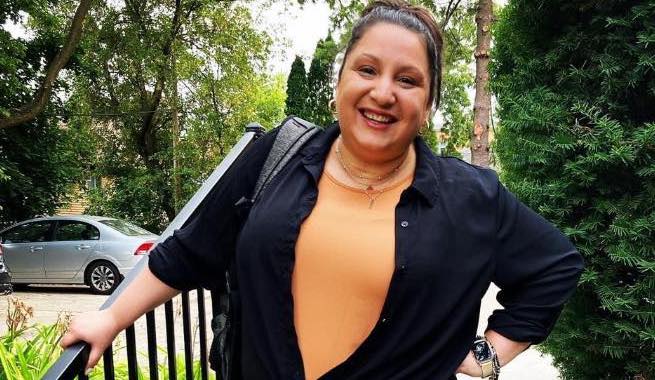
Nicole Ramer (she/her) | Secretary, Composition & Rhetoric
Nicole is a 4th year PhD Candidate studying Rhetoric of Health and Medicine, Public Sphere Theory, and Community-Based Research.
